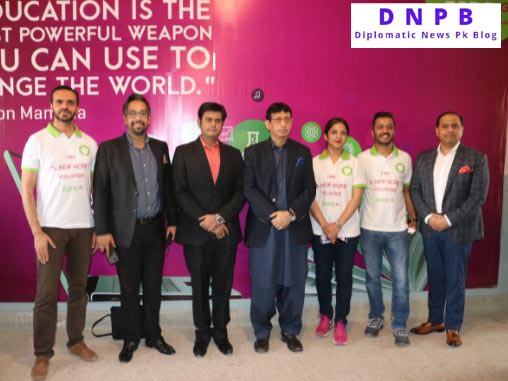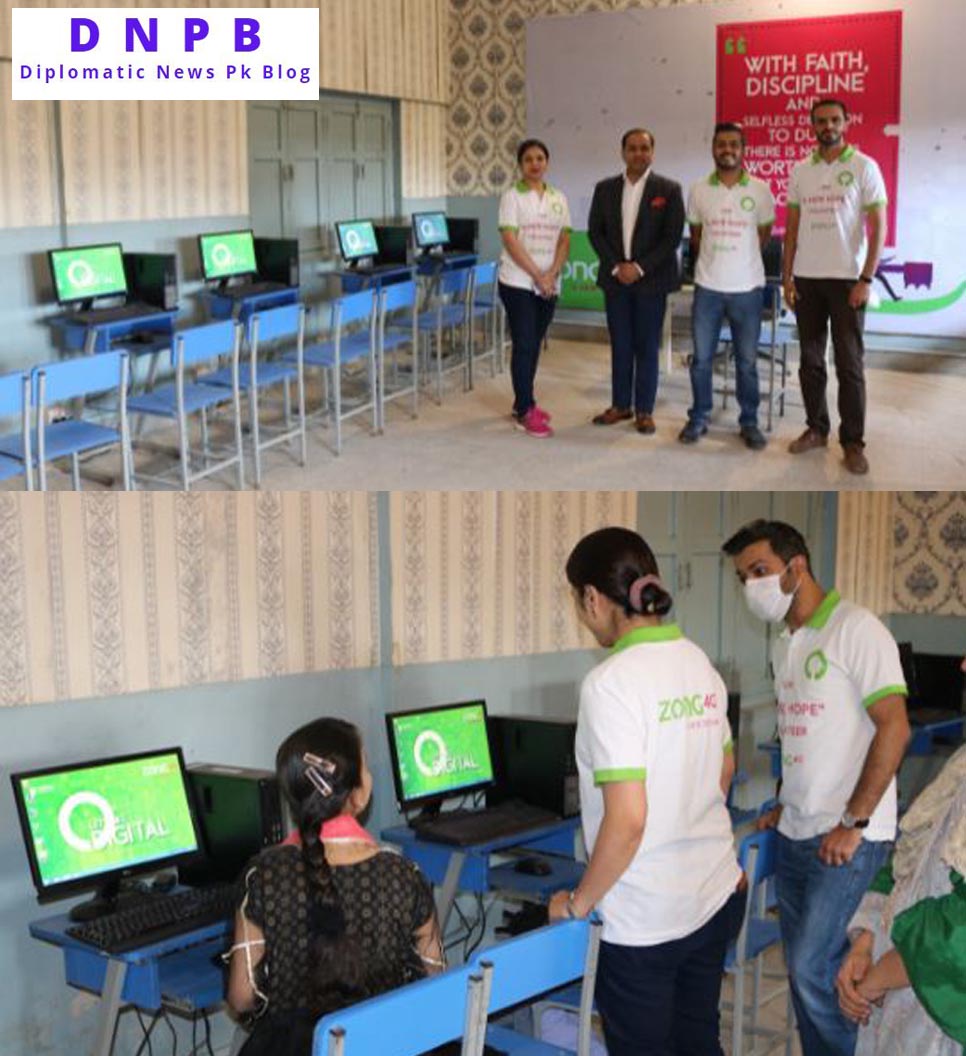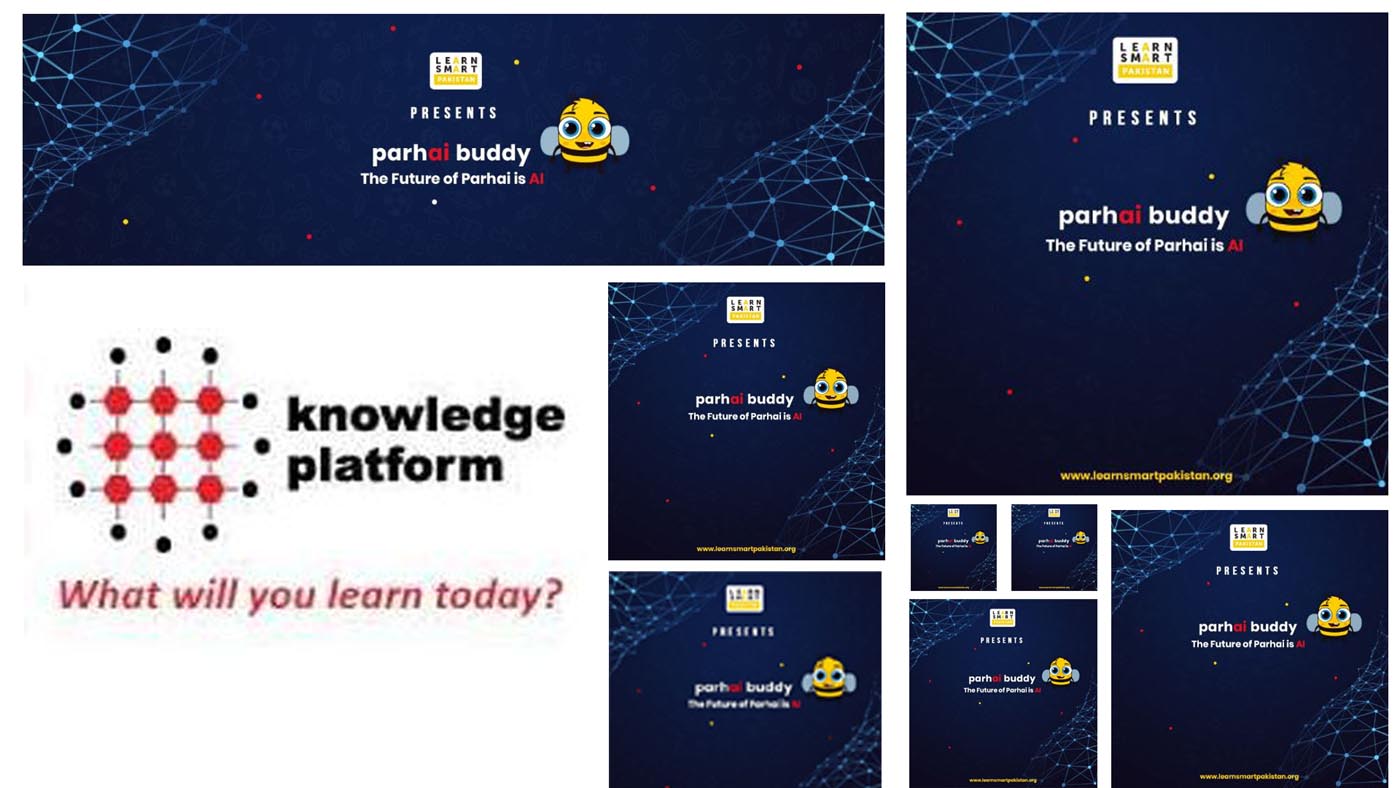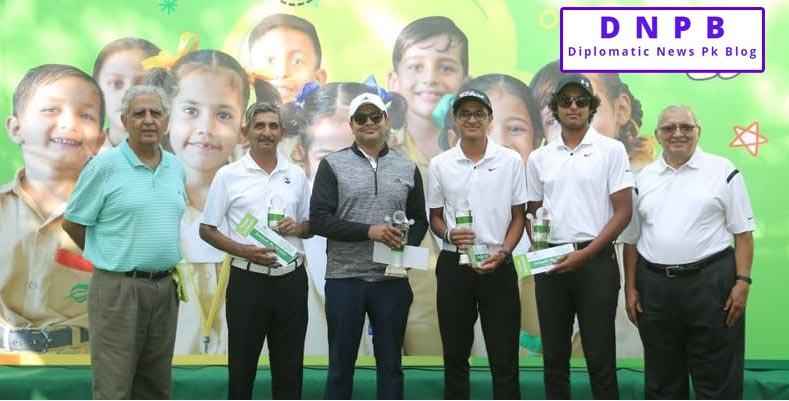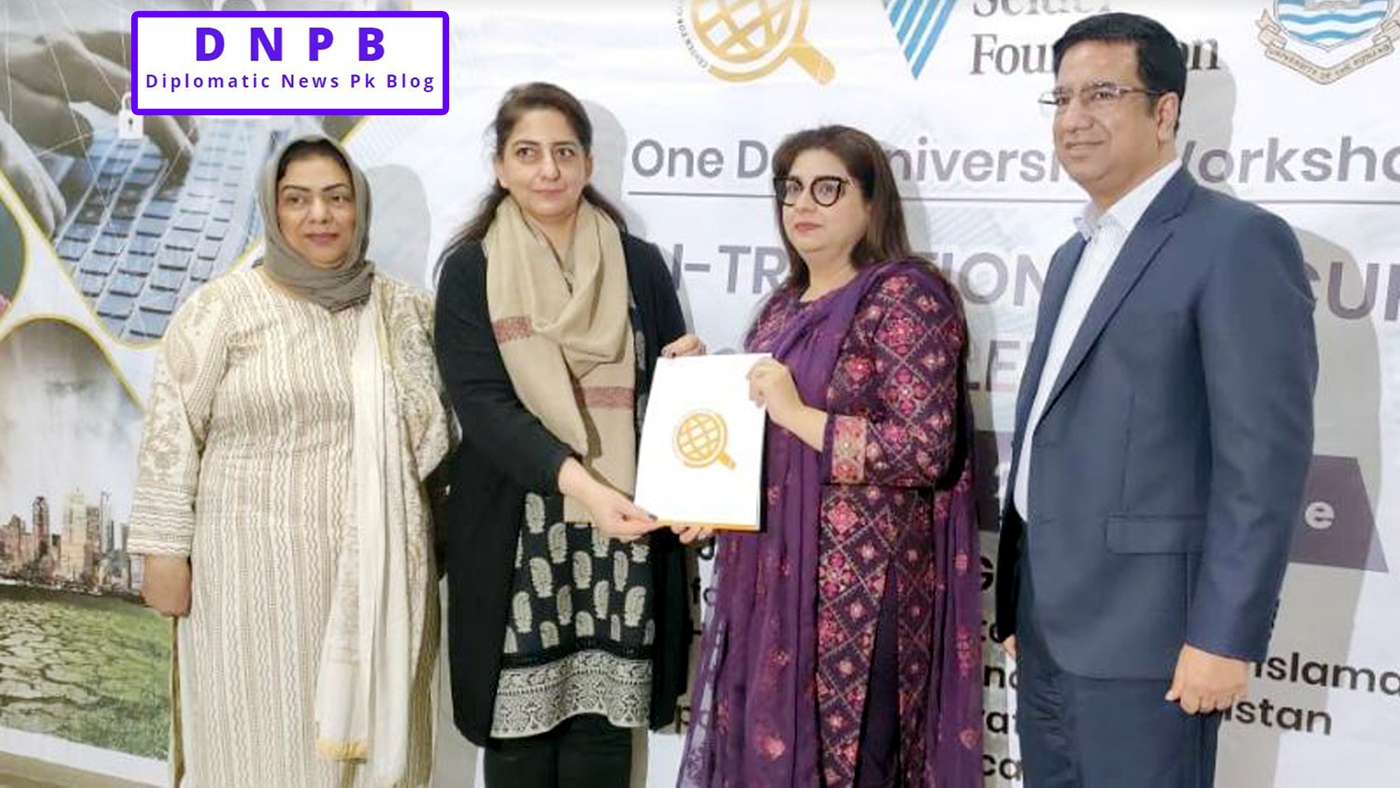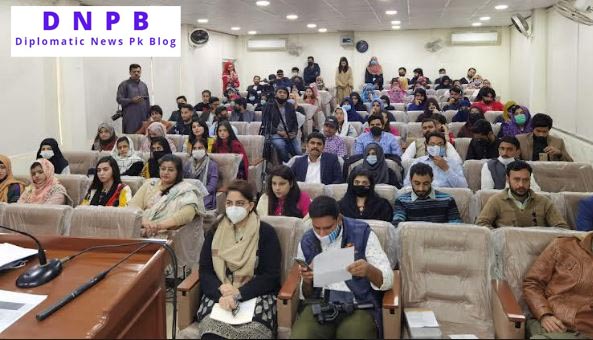LAHORE, DEC 9: Center for Global
& Strategic Studies (CGSS), Islamabad & Hanns Seidel Foundation
Pakistan in collaboration with Department of Political Science and IR &
Regional Integration Centre, University of the Punjab, Lahore organized a One
Day University Workshop on “Non-traditional Security Challenges” in Lahore.
The event commenced with welcome
remarks by Meher Ghawas, Head of Program Management, Hanns Seidel Foundation
Pakistan. She stated that today’s workshop on NTSC aims to discuss nontraditional
security challenges being faced by Pakistan, amongst academia and policy
experts. With an increasing population and depleting resources, it is important
for the policy experts and youth to comeup with solutions together in
addressing such challenges.
Khalid Taimur Akram, Executive
Director, CGSS presented an Overview of Learnings and Outcomes from CGSS-HSF
joint events on Non-Traditional Security Challenges. He stated that CGSS in
collaboration with HSF has organized almost six high-level national events on
NTS issues.
We are working through
comprehensive research assessment on NTS issues amid policy recommendations to
compose a robust policy plan.
Moreover, we are working to
promote awareness and constructively add into the curriculum development on
Non-traditional security challenges through extensive research. He mentioned
that we have been successful in developing profound understanding and analysis
and bridging gap between academicians and stakeholders via providing them an
integrated platform to discuss relevant subject.
First session of the Workshop
commenced with the speech of Prof. Dr. Iram Khalid, Chairperson, Department of
Political Science and International Relations, University of the Punjab, Lahore
who discussed “Evolution of Traditional Security to Non-Traditional Security”.
She stated that the fundamental goal of NTS should be to overcome the dichotomy
between traditional and non-traditional security paradigms.
Despite the maturation of
scholarship and policy attention on NTS issues, however, pervasive questions
remain about the relationship between non-traditional and traditional security
sectors, what or whom is being secured, and the conceptual and practical value
of “securitising” more generally. Challenges in the food, energy,
environmental, and health sectors, among others, threaten the lives of
countless vulnerable communities and the future progress upon which societies
across the world depend.
The charge of NTS is to explore
these issues coherently and in ways that can add value to the policymaking and
civil society communities.
Dr. Tahira, Assistant Professor,
Department of International Relations, University of Sialkot, Sialkot discussed
“Impact of climate change on water security: Policy Recommendations”. She
explained the interrelationship between climate change and water. She stated
that planning is needed in this regard. “We need to enhance and strategize our
water policy. We need to opt for precautionary measures so that the risk of
spreading infections can be reduced”. She stated that through usage of
technology and enforcement of legislation,
things can be improved.
Dr. Rehana Saeed Hashmi,
Associate Professor, Department of Political Science & IR, University of
the Punjab Lahore discussed Climate Change driven migration and national
security. She stated that climate change affects other aspects of our physical
environment.
These challenges are very serious
with long term fallouts. Climate change driven migration will test the
capabilities both nationally, internationally and collaborations globally. The
South Asian region is severely hit by climate change. She stated that there is
a huge gap in literature to assess the situation of Pakistan. The agriculture
departments of various universities must focus on new technologies.
The Government should update its
climate policy and tailor-made policies for each province must be devised.
Dr. Sharreh Qazi, Assistant Professor, Department of Political
Science & IR, University of the Punjab, Lahore highlighted Cyber security
challenges to Pakistan: Role of Artificial Intelligence in mitigating these
challenges. He stated that a grounded definition for cyber security has yet to
emerge given the nature of multifarious platforms, domains and operability of
the cyberspace environment.
The activity or process, ability
or capability, or state whereby information and communications systems and the
information contained therein are protected from and/or defended against
damage, unauthorized use or modification, or exploitation.
AI, coupled with High Performance
Computing (HPC) like Supercomputers and Quantum-computers allows bolstered
cyber security insulation. Computation-intensive tasks are necessary given how
utilization of cyberspace has intensified into a more aggressive domain of insecurity.
Dr. Qudsia Akram, Assistant
Professor, International Relations, Kinnaird College for Women, Lahore,
Pakistan emphasized on Food insecurity and agriculture policy ramifications for
Pakistan. She stated that Pakistan is an agrarian economy and 39% labour is
involved in agriculture.
Pakistan’s major problem is
energy crises, rampant corruption and poor data collection techniques. One of
the major challenges in this sector is that the yield from the crops is very
little, agricultural land is not being efficiently utilized. Pakistan needs to
introduce good quality seeds and better incentives in this sector.
The second session of the
workshop commenced with the speech of Professor Dr. Mehnaz, Chairperson,
Department of Social Work, University of the Punjab, Lahore who discussed
Pathogens and pandemics: Impacts on Nationals security of the state and policy
options. She stated that pandemics directly affect a country’s economic
security.
Pandemics impact the supply chain
management as the import and export is greatly curtailed and restricted
resulting losses in industries, profits, and employment. Pandemics can cause
significant widespread increases in morbidity and mortality. It can cause
significant social and economic disruption. It also causes behavioral changes.
Globally till 3rd December 2021, a total number of 266.14 million confirmed
cases of COVID-19 were reported.
Wrong societal attitudes,
domestic violence and harassment have also been triggered due to COVID-19. She suggested that the highest priority must
be given to cost effective strategies.
Dr. Amanullah Khan, Dean, Faculty
of Law, University of the Punjab, Lahore discussed Curtailing hybrid warfare under the
provisions of domestic and international law. He stated that security is a
collective job. The flow of information has changed fundamentally.
The basic lesson that we must
learn from the pandemic is that where do we stand as a society. Political,
legal and judicial stability, social welfare, education, health, economy, all
these factors are very important and are interconnected. However, the role of
citizens is the most significant in this regard. We have to comeup with
solutions that can be adopted and be successful.
There are many nontraditional
security challenges that are visible but what is more important is that our
society is based on rule of law and equality.
Dr. FouziaHadi, Director,
Regional Integration Center, University of the Punjab, Lahore discussed the
Role of Pakistan’s academic networks in emerging NTS threats. She stated that
universities are considered to be change agents in many issues including
non-traditional security threats and sustainability awareness.
Therefore, universities need to
be reformed in the field of teaching and research. Universities have the
possibility of using divergent tools to connect those skills with expert
knowledge and enable students to generate new ideas, new theories, and new
products evolving around sustainable development issues.
Ms. Laraib Fatima Hassan,
Communication & Coordination Executive, CGSS highlighted “Technological
transformation: An Asset or Liability?”. She stated that we witnessed the
massive technological transformation in our education sector during COVID-19
that proved to be an asset for the academia of Pakistan. Technology has changed
the orthodox ways of teaching. Now, the patterns of learning and education are
more inclined towards advanced instruments or patterns vis-à-vis technology.
The opportunities for formal
learning have also gone digital because of online degree programs, courses,
sessions, and much more. She mentioned that there should be advanced and
effective teacher training programs facilitated by the government at a broader
level that rely on understanding, accepting and using technology. Technology can
also create solutions that can help bridge existing gaps in education, policy,
capacity building and modern means.
The third session of the Workshop
included interactive question and answers. The students were provided the
opportunity to ask questions and also share their input on the subject.
The Workshop concluded with the
closing remarks by Prof. Dr. Iram Khalid, Chairperson, Department of Political
Science and International Relations, University of the Punjab, Lahore. The
Workshop was attended by Faculty members and students from the University.
----------------------------------------------
